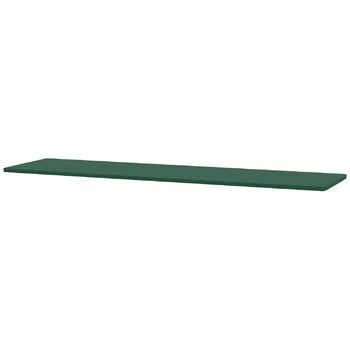Montana Furniture’s Panton Wire top panel is part of a modular shelving system created by the legendary Danish designer Verner Panton in 1971. The shelving system is characterized by simple, flowing forms and versatile adaptability. The Panton Wire top panel transforms a basic module into a small side table and gives a stylish finish to a steel wire shelf. The panel is available in a range of materials and sizes.
The Panton Wire system allows you to create a customizable storage solution to any room of the house. You can arrange the modules, shelves and panels into a free-standing bookshelf, mount them on the wall as a nightstand or kitchen shelf, or compose them into a room divider. The outcome is – typically for Verner Panton’s designs – industrial, elegant and airy at the same time. The Montana products have been manufactured in Denmark at the company’s own factory.







